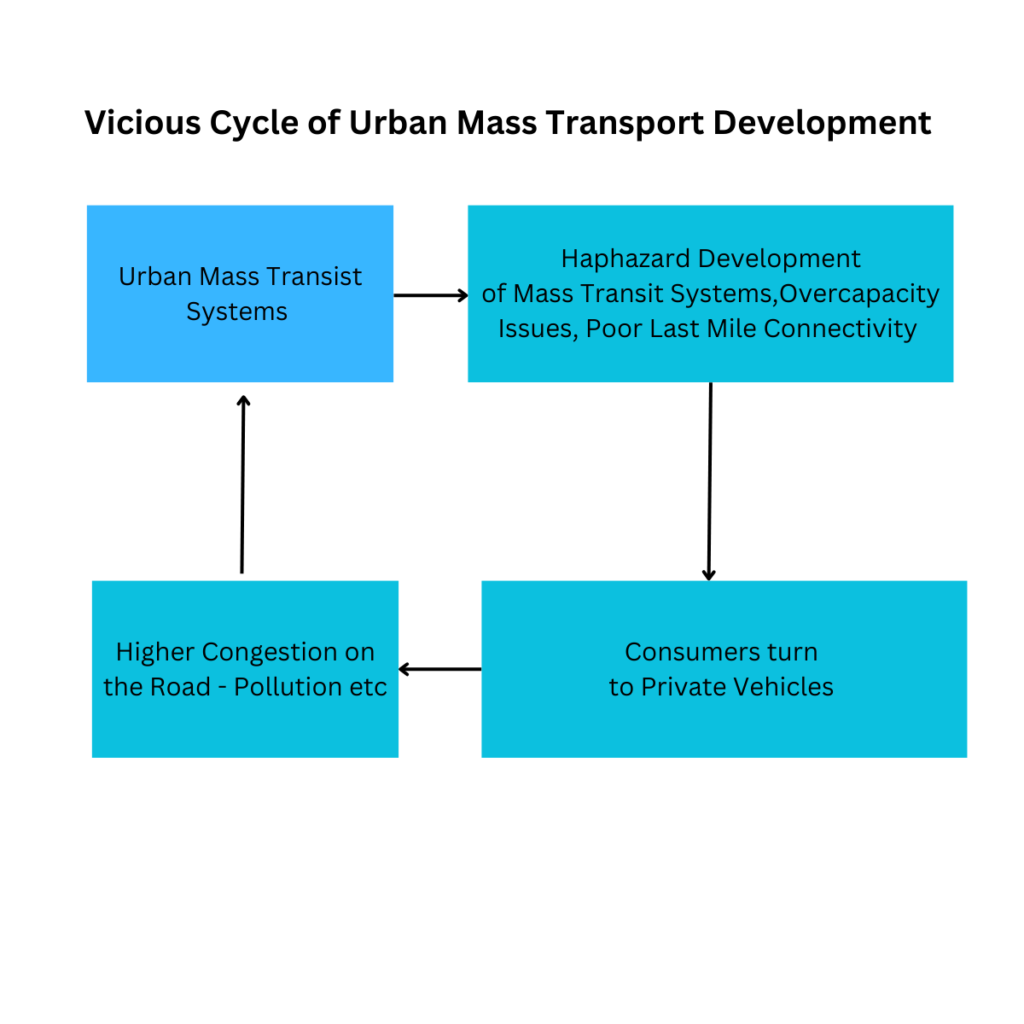Hustle Everyday, Everyday Hustle
Your commute to the office has an impact on your productivity at work. This seemingly obvious factor has often been overlooked. Most productivity literature including the articles on this website have focussed on the systems at the workplace and the individual themselves. As fully remote work comes to its logical end, there is an urgent need to focus on improving the experience of travelling to work in metros of India.
The recent 3 hour long traffic jam on Outer Ring Road in Bangalore was another low in the history of jams of the city. The calculations of loss in productivity go into millions but when you factor the negative impact on the mental health of those affected, it will be much more. Similarly, the daily hustle of local train travel often glorified as the “spirit of Mumbaikars” is a clear drain on the average worker. Speaking from personal experience, an uncomfortable commute has the potential to disrupt productivity by a high margin.
The pain of urban commuters doesn’t end at the railway station. The next big challenge then is getting to the office. If you work in BKC, Andheri East, Lower Parel or Nariman Point – finding comfortable transport from the nearest railhead is cumbersome. Sure, there are shared cabs and auto rickshaws available but they are overpriced and most often unorganised. Try getting an auto from Bandra station for BKC in the rush hour and you will know. Ditto is the case for getting a comfortable bus ride to Whitefiled and Outer Ring Road from the nearest metro stations.

Impact on Productivity
This haphazard form of urban transit systems causes increased demand for private vehicles which creates more congestion and the vicious cycle, sought to be broken by mass urban transit systems, continues to only grow stronger. This in turns causes fatigue, irritability, respiratory issues, loss of focus and overall discomfort for those enduring the commute to office.
Speaking of focus, the mind requires time and effort to switch from one context to the other. So moving from the experience of uncomfortable travel to actual work takes time. This context switching robs the person from the golden period for focus – start of the day. While many private companies go the extra mile and provide last mile transportation, this is an added cost and may not be affordable for all organisations. Thus, the urban authorities have a huge role to play.
What can be done?
A few recommendation to improve the commute experience: :
- Good Feeder Facilities:
- Share auto stands with clear queue systems and fixed rate (wonderfully done at Churchgate Station but poorly done in Bandra East)
- Auto and Taxi stands incorporated in the design of corporate parks – the way it is done at T2, Mumbai to ensure wider options for all occupants
- Private player participation to run feeder services from railheads, metro stations at a nominal cost not limited to buses but also tempo travellers, mini buses with priority lanes for feeder transport
- Chalo Bus with BEST runs a good metro feeder service but it is accessible only by app based ticketing which is not very friendly for all, simplification and expansion of such services will help
- Optimise seating in buses with only priority seating to accommodate more passengers for shorter routes (< 2 KM/20 Min)
- Coordinated Timetable of departure depending upon the train timings so that the passengers have a seamless experience
- Simplified payments leveraging on the NCMC cards and expand scope to autorickshaws and cabs via a digital bridge
- Staggered/Flexible Office Timings:
- Defining Core working hours can be more helpful and promise to offer flexibility to various departments which in turn can reduce the rush hour pressure on trains and metros.
- Moving to an overall 9 hr schedule without fixed start and end times can reduce the pressure on the systems during rush-hour
- A few days of WFH every week would reduce the pressure as well and allow the employees to focus more on work without worrying about the commute
The need for clean, comfortable and convenient travel is going to only increase in the times to come. While the government takes some steps to build infrastructure, organisations can play their part too. Because, afterall an employee who arrives fresh to work is likely to be more productive and happy, a win win for all.